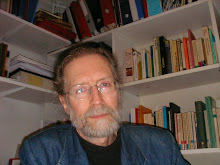One of the great mysteries of our days is the rage that has entered the field of politics. Politics used to be a game with fixed rules and values, played by gentlemen and ladies. Politics was about parties who had their specific values, and their specific support. If you were a workman you voted for the socialists if you were an entrepreneur, you voted for capitalists and if you lived in a manor you were voted. The manors have been turned into hotels and the gap between workmen and entrepreneurs has become blurred these days. The political scenery has shifted and nobody was prepared for it. A new force has come to the foreground: the antipoliticians. What has happened? What suddenly appeared to be wrong with the idea that citizens vote to be represented in gouvernement? Isn't it true that power can only be justified if it's based on consent? What happened to the principle of democracy, the social contract, whereby the gouvernement excercises it's power for the general good?
One of the first things that changed was the disappearance of the general good. Due to the influence of the system of indirect voting and the media, elections have taken on the character of baseball games. It has become a matter of victory at all costs. Victory is the result of intensive campaining, sponsoring and lobbying. The voter has become crowd and winning elections has become a matter of crowd control. The future of the country is no longer an issue, all that matters is the performance of political stars in debates and how they suck up more convincingly to the favours of the crowd. What these favours are, is explained in the media by experts. And the masses of media consumers consume, indifferently. This situation came to be redefined as the gap between the people and the politicians, which was again a brilliant move by the media, because this way they could get all the attention they wanted by describing a nonexisting emergency. The people had become masses, the politicians performers and the socalled gap is nothing but the way they react to each other.
I guess it has a lot to do with the lessons in highschool where teachers teach their children that democracy is the type of gouvernement where the people rule the country. So it's no surprise that many citizens think they have the right to control the gouvernement and if this appears to be not so easy they get very confused. Moreover all institutions deliver on the spot, so why cannot you order a tax cut like you order a new laptop on the Internet?
Nobody knows what the word 'representation' means and what it has to do with democracy. So like in the commercials you look for something to trust: a person who seems for real. Now you're ready to vote. You get bombarded with promises and predictions and you do't know what is true and what not. So you look for something different, something you can understand. You look for someone who could be you, so that it looks like you control gouvernement after all.
The politicians also get confused and many of them try to figure out what's wrong with the system (apart from those of the U.S.A. of course, because we all know that in this country the system is flawless and people there are just free and lucky). They try to be responsable, study their dossiers, balance the pros and cons carefully, hold long meetings to come to a mutual understanding and after all this they get the message that they're not common enough. At this point the antipoliticians jump in. They grasp the opportunity and create an orgy of commonness as an easy and sure way to fame, power and a regular income. So power ot the people has become power to the masses in other words power to the vulgar. This is the politics of antipolitics: the exploitation of the political field for the sake of profit.
Is this the end of politics? No, this cannot be. Why not? Antipolitics needs politics, because it lives of politics as a parasyte, it is political AIDS. The resiliance of political life cannot resign. Political life will reemerge as a phoenix.
dinsdag 23 maart 2010
Abonneren op:
Posts (Atom)
